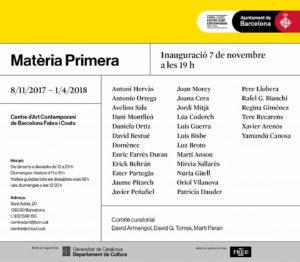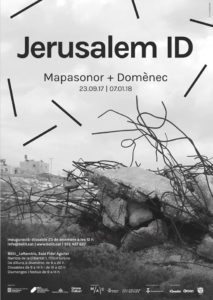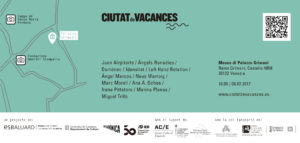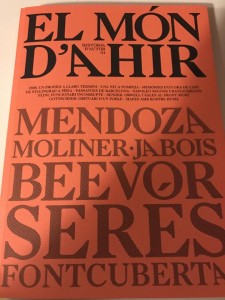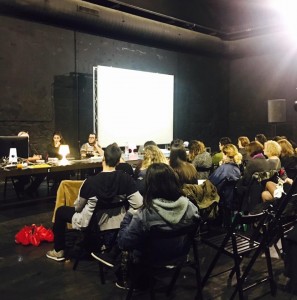8 / July, 10:00 > 18:00
NACMM > KIBRIT ENCOUNTERS > BCN is conceived as a moment to share reflections on topics such as artistic mobility, knowledge and collective memory production and artistic and curatorial practices for the reactivation of tangible and intangible cultural heritage in the Arab region. It invites curators and artists to present their work, research and methods, while also introducing the reflection and actions developed by NACMM – North Africa Cultural Mobility Map through its project HARAKAT as well as through the KIBRIT programme.
More info:
www.nacmm.org
www.kibrit.org
PROGRAMME:
10.00 – 10.15: Opening doors and light breakfast
10.15 – 10.30: JISER Reflexions Mediterrànies / Presentation and introduction of the day by Xavier De Luca
10.30 – 11.00: NACMM / Platform HARAKAT: Investigating mobilities of knowledge / Presentation by Pau Cata
11.00 – 11.30: KIBRIT: Reactivating memory collectively / Presentation by Francesca Masoero
11.30 – 11.45: Q&A
11.45 – 12.00: Break
12.00 – 12.30: The burden of my neighbours. Poetry and Song as Strategic Devices / Artist presentation by Christina Schultz
12.30 – 13.00: Erased Land / Artist presentation by Domènec
13.00 – 13.30: Emotional Cartographies / Artist presentation by Marta Vallejo Herrando
13.30 – 14.00: Q&A with the artists
14.00 – 15.30: Paella and informal discussion
15.30 – 17.30: Screening session:
– Le paradis ????? – Paradise, Tunis, 2017 – A video art work by Bárbara Sánchez Barroso (o.v. FR/AR, subtitles ES)
– Moi, un noir. RELOAD, 65’, Tarragona, 2015 – A film by Ro Caminal (o.v. ES, subtitles ENG)
– DJART ‘14, 25’, Algiers, 2016 – A documentary directed by Annalisa Cannito, Hichem Merouche
NACMM and the platform HARAKAT are funded by Anna Lindh Foundation, South Med CV and the Oficina de Suport a la Iniciativa Cultural (OSIC).
Kibrit is funded by SouthMed CV, a programme initiated by Interarts, BAC Art Center, Gudran for Art and Development, Khayal Arts & Education, National Center for Culture and Arts and the German Commission for UNESCO. The programme is co-funded by the European Union within the framework of the regional programme Med Culture.
